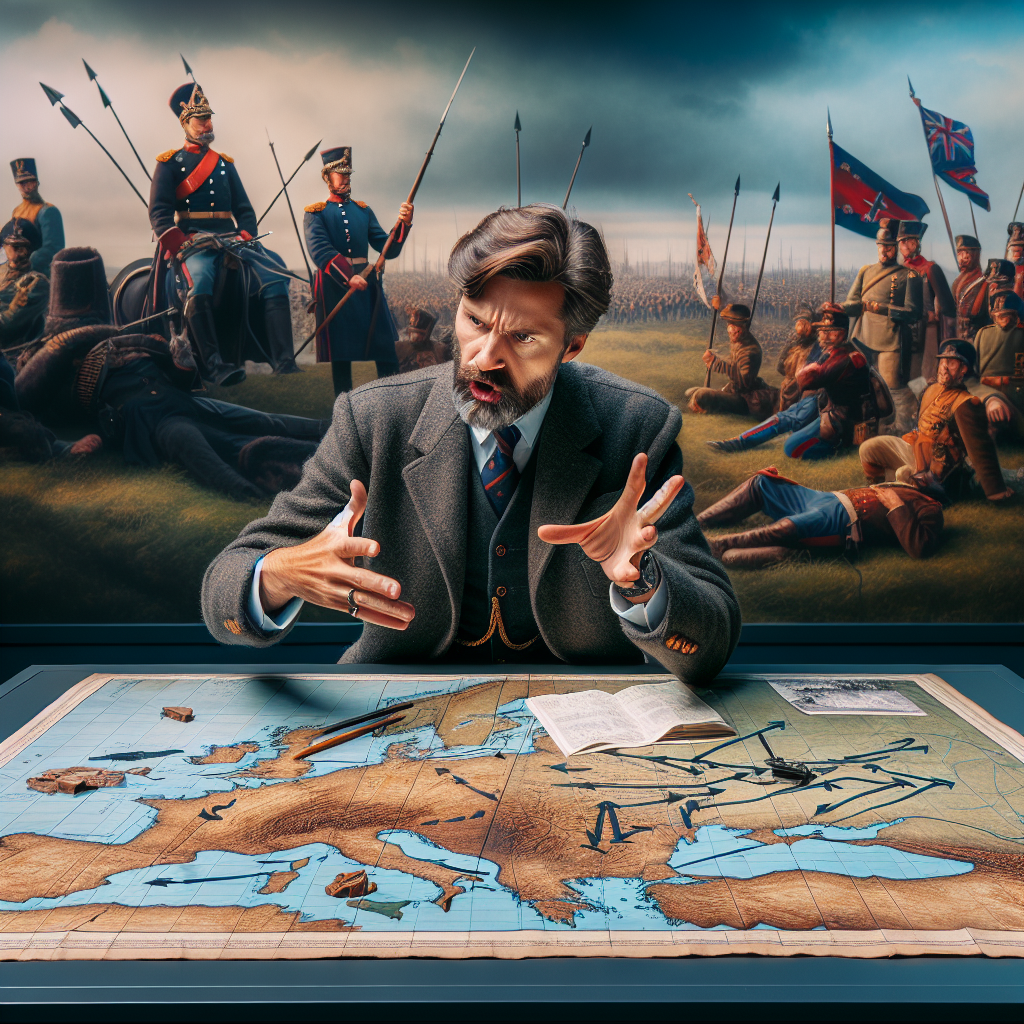The Echoes of History in Contemporary Warfare: Unpacking the Lessons of Conflict with Andrew Roberts
The annals of history are replete with tales that resonate through the eons, shaping the present with the wisdom of the past. Few capture this essence as eloquently as Andrew Roberts, a historian whose grasp of historical narrative and contemporary analysis puts him in an echelon with the titans of the field. In a recent profound discussion, Roberts delves into the complexities of warfare, the subtleties of leadership in conflict, and the trajectories of war that have brought us to the brink of the future—a future where drones may outpace human strategy and decision-making.
The Unchanging Nature of Strategic Leadership
While the face of battle has evolved from trenches to drones, the core of strategic leadership remains immutable. Roberts, in his dialogue, underscores the criticality of strategic leadership, harkening back to instances where the right—or wrong—commanding figure altered the course of entire campaigns. It's not merely about the quantity of troops or the sophistication of artillery; rather, it is the cognitive prowess and inspirational acumen of the leaders that often tips the scales of victory.
But what makes a masterful strategist? Roberts identifies four tenets: the vision of the campaign, effective communication, agile implementation, and continuous adaptation. History has witnessed numerous David versus Goliath scenarios, where the ostensibly weaker side prevails through sheer strategic brilliance.
Warfare in the Nuclear Age: A Perilous Balancing Act
The advent of nuclear weaponry has thrust the world into an age of precarious peace. The destructive potential, Roberts elucidates, has served as a deterrent—a shield under which nations operate with veiled threats rather than full-blown conflict. This nuclear umbrella has, paradoxically, kept wars 'limited'. Yet, as history whispers its cautionary tales, this uneasy equilibrium is as fragile as it is foreboding.
The Versatility of Warfare: Insurgencies and Perceptions
In contemporary theatres of war, the narrative often intertwines with the battle itself. Roberts poignantly discusses the propaganda skirmishes where local insurgent forces, like the Taliban, wield the legitimacy of their cause against foreign powers. It's an intricate dance of perception, where the lines blur between liberators and invaders, and where local governance battles for the same legitimacy.
In this complex web, the United States has sometimes faltered, painting its interventions with broad brushstrokes that failed to capture the nuances of local legitimacy and strategic narratives.
The Enigmatic Future: Where Do Drones Lead Us?
As we stride into the future, Roberts presents a landscape where warfare is transmuted into a clash between mechanical behemoths—drones acting out the will of their human creators at speeds unfathomable to the human mind. The prospect of such a future poses profound questions about the essence of warfare, the role of the soldier, and the ethical bedrock of conflict.
The potential for a complete overhaul of military strategy and warfare is tangible, yet uncertain, as we edge closer to a world where artificial intelligence not only advises but decides.
The Legacy of Churchill: A Model for Modern Warfare
Winston Churchill stands as an immutable beacon in the tempest of warfare, embodying the fusion of a historian's perspective and a leader's gallantry—qualities critical in an era dominated by rapid technological advancements and geopolitical shifts.
Roberts draws from his extensive study of Churchill, portraying a man for whom history was not just a subject but a guiding light—a source of inspiration and tactical guidance resonating with contemporary leaders.
As the drums of war beat once again in Eastern Europe and the specter of conflict looms large, it is Churchill's legacy that may still hold valuable lessons for strategic fortitude and moral clarity.
In closing, the eloquence with which Andrew Roberts articulates the lessons of history and their application in contemporary conflicts is a stirring call to the importance of strategic leadership, historical awareness, and the sobering reality of warfare's evolution. As the world grapples with the echoes of the past and the riddles of the future, Roberts' insights serve as both a warning and a guiding star in the eternal quest for peace and strategic discernment.
For those seeking to delve deeper into the transformations of warfare and strategic thought, resources such as the RAND Corporation (RAND Corporation) and the International Institute for Strategic Studies (IISS) offer expansive research and analysis that complement the themes explored by Roberts and his contemporaries.
Related News
- The Legacy of World War I: Shaping the Strategic Minds of World War II
- The Complex Tapestry of War: Beyond Generals and Tactics
- Peering Into the Abyss: The Shadow of Global Conflict in the Modern Era
- The Strategic Blunders That Reshape Geopolitical Landscapes: From Pearl Harbor to Crimea
- The Transformative Power of Superintelligence in Military Affairs
